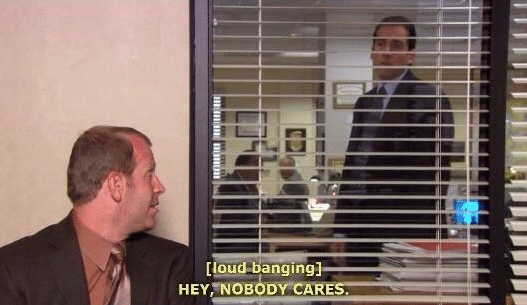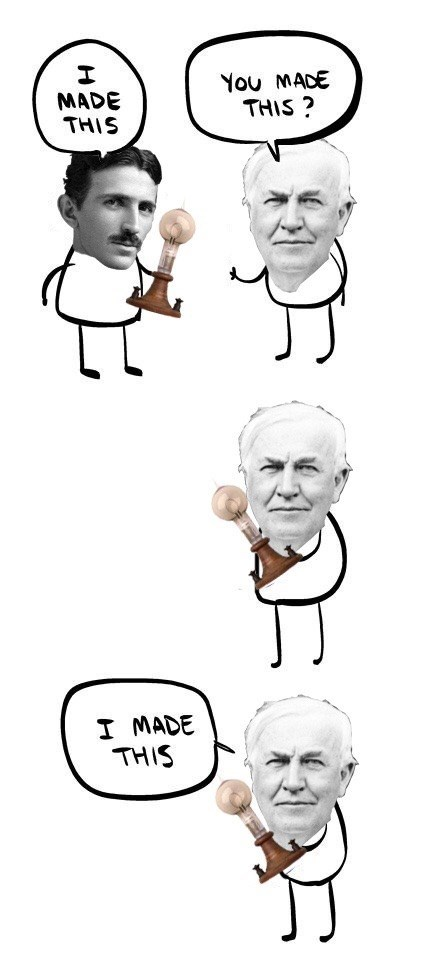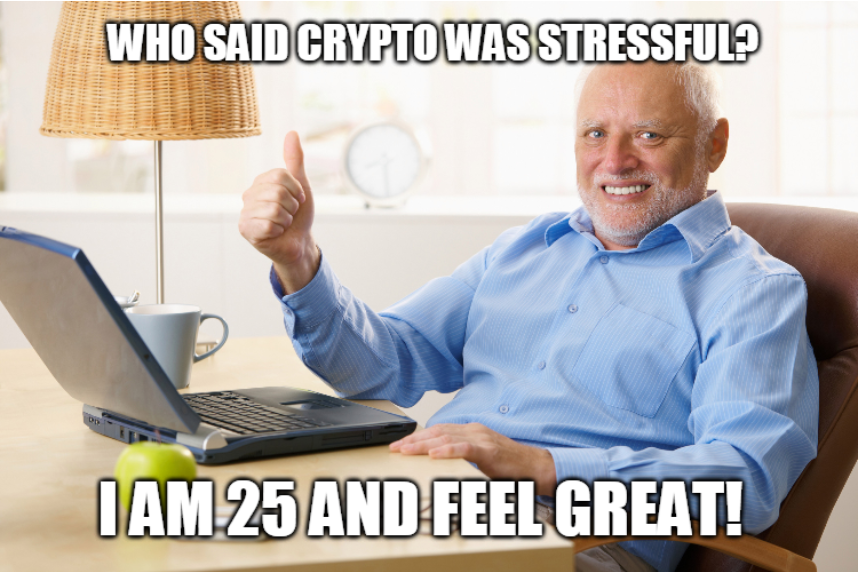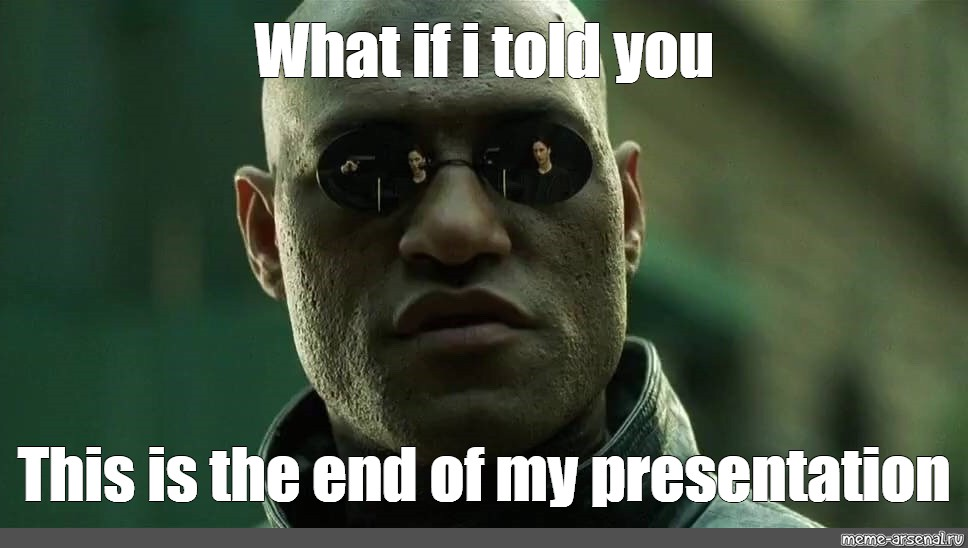This post was adapted from a thread originally posted by @Flantoshi on Twitter
DISCLAIMER
Over 90% of my net worth is in ADA at the time of writing. I believe in the project enough to more or less work full-time on it.
That said, I believe anyone that invests in an asset should be able to play devil’s advocate against it if they really understand it. If you’re either unwilling, or unable to say anything bad or threatening about your investments, then in my estimation you’re not investing, but gambling.
All in all, I am going to be uncharitable in my assessment of both Cardano and its community. I don’t do this out of malice, but out of an attempt to temper some of the over-optimism native to Twitter that I’m sure has led people to overleverage and go bankrupt.
I truly despise that crypto preys on people’s greed, desperation and frankly ignorance of the world to enrich a select few. So I view it as my duty to be an occasional dissenting voice.
There are a lot of elements that get trotted out against Cardano, from its programming language, its slow development pace, being a “ghostchain”, even questions on the moral character of its founder. Other people have addressed those concerns, so I won’t bother doing it myself.
That said, if I have to read another article that alleges with no evidence that Charles Hoskinson, the founder of Cardano, claimed to be Bitcoin’s inventor, or that he said that he’s special forces and jumps out of helicopters, or is a fraudster who scammed Japanese retirees, I’ll scream.
The amount of nonsense and easily disproven lies that get thrown at Cardano is unreal. I won’t mention any of those tired critiques, it’s boring and you’ve all heard them before.
Today I’ll unleash new FUD worthy of Cardano, and your intellect. Hopefully, in this way, we elevate our understanding of the project and its shortcomings, along with gaining a more sober understanding of what is realistically possible with the investment.

What if they’re right but nobody cares?
If you’re reading this article with any interest, you’re bound to be an early adopter of crypto as most people in the world do not know (or frankly care) about what a blockchain is. Meaning that your behavioural profile is likely very different than the average person — this is not to say it’s better or worse, simply different.
But as a consequence, it’s difficult to extrapolate your enthusiasm and perspective to the wider society. This is a critical trap that most tech evangelists fall into, you can go look at early interviews of Bill Gates on the famed late-night show of David Letterman, where the host mocked the very idea of a personal computer and the internet.
The vast majority of people can’t imagine the potential effects a particular piece of technology can have until it becomes a part of their everyday lives.
Of course, the backwards views of people like Letterman have been proven wrong with time, but there’s no guarantee it’ll keep happening. In the same way that Victorian-era tech evangelists thought the future would be steampunk, we can make the same mistake as well by over-relying on what we know and extrapolating it into the future.
It might well be that the tech underpinning blockchain is a curious technological oddity that we just don’t decide to pursue as a society because other avenues of research looked more promising. We’ve often done it before, for instance, atomic power has been woefully underdeveloped because the broader world has had a taboo on it for decades. Or analogue computers might well have had new and exciting dormant discoveries that we might never get to explore because we just don’t care enough to bother investigating the field any further.
However, let’s cast those doubts aside. Let’s imagine that Cardano truly holds the best available solution for blockchain and that the wider public is willing to embrace blockchain technology without caveats.
Even in that fantasy scenario where Cardano is objectively the best possible technology that could be developed, it’s not a foregone conclusion that it would become the world standard. It happens all the time where a better technology loses against a worse one out of practical considerations.
For example, the DVORAK and Colemak keyboard layouts have not won out against the QWERTY keyboard layout which you are likely using now, because while being more efficient, reducing repetitive strain injuries, and many other benefits, they simply cannot compete with the entrenched status quo of the QWERTY keyboard. Unless a technology shows promise of being a magnitude better than previously existing alternatives, old fashioned entities might not bother even trying to adopt it.
Just to make a point, there are presently a few dozen countries in the world with active telegram services, and they’re not just used as a humorous gimmick, in some places they’re still used for official legal functions and announcements. As much as we like to believe that we live in a world of rapid advancement, change is often much slower to occur than we might imagine, even if better options are more readily available and obvious.
In either case, sometimes the choices aren’t as readily apparent in the fog of war. There might be conflicting narratives and ideas, which only begin to make sense with the benefit of hindsight.
Is basically any project that Elon Musk is involved in actually the future, or vapourware? Will he be remembered as a visionary pioneer or a huckster cut from the same cloth as PT Barnum? Who the hell knows?
So let’s go to the past, where the battles have been fought and we unequivocally know who won. Back in the late 19th century, when electricity first began appearing in public lighting and private homes, there were two competing power transmission systems: Alternating Current (AC) and Direct Current (DC).
Both systems have their positives and drawbacks, and to this day both are used for different purposes. However, the crucial reason why AC has become the standard in a good portion of the world is that DC can’t easily travel long distances in the same way as AC.
In other words, it’s far simpler and cheaper to generate and distribute AC power than its counterpart.

This presented a problem for the likes of the famed inventor and patent troll Thomas Edison, as he had recently filed the patent for DC associated tech. Then, as AC started to gain traction as a viable competitor he got worried it would eat into his profits.
It might have also been genuine concern over the safety of the system, as Edison seemed convinced the very high voltage used in AC systems was too dangerous and that one too many accidents might set the development of electrical utilities back decades. So he took to threatening legal action, publicly decrying the potential dangers of AC and publicity stunts.
The whole timeline got so insane that there’s a persistent historical myth that he publicly electrocuted an elephant to prove proponents of AC, like Nikola Tesla, wrong. The elephant was electrocuted but not by Edison and it happened years later.
That said, it’s easy to see why it has remained as part of the narrative, as Edison suggested that AC would be the best to use for powering the newly developing technology of electric chairs to kill criminals, due to its dangers. This defamation worked to an extent and some people began to refer to getting killed by the electric chair as getting “Westinghoused”, in reference to George Westinghouse, an entrepreneur and engineer favouring AC.
Overall, the whole narrative got so muddled that infrastructure investments for DC were made, and by the time where its shortcomings were evident, it was too late. It took decades for some areas to fully get rid of their DC infrastructure (and in some, it took to this millennium).
That’s a major threat for Cardano, even assuming that it is indeed the superior product, that doesn’t guarantee winning the mass adoption battle. A few bad public relations campaigns as well as competitors like Ethereum, or Venture Capitalist-backed coins might inadvertently set unfavourable standards which Cardano never fully recovers from.
Ultimately, AC more than a product or service was a scientific concept, whether it was adopted now or in a millennium, the truth behind it would remain. It doesn’t matter whether it was Westinghouse or some other tech entrepreneur who would benefit from the tech’s implementation, as it would eventually surface and be widely used.
On the other hand, while Cardano prides itself on using the scientific method, its investors will not necessarily be the ones that benefit from the use of the project’s contributions to scientific literature. For instance, competitor Polkadot’s system framework already uses the knowledge that was developed by the research done by Cardano. Imagine the alternate future where Polkadot wins the mass adoption race, and Cardano remains unused — same tech, but then the original investors get nothing in return.
So Cardano runs the very real risk that some other project might benefit from the knowledge that Cardano so painfully accrued, and then overshadows Cardano through better marketing and contacts in target industries.

Where in the world is Cardano?
This assertion probably does not make me particularly popular in the Cardano circles, but Africa is a bad base of operations for the project to work from. Now, I get the arguments for it:
- An extremely populous region which skews young and understands the need for radical and novel change to develop;
- The average consumer has little to no pre-established brand preferences, so there’s massive potential for new entrants to get a first-mover advantage and generate network effects that eventually become competitive moats; and
- Somewhere around half of Africa’s population is unbanked or severely underbanked and thus very interested in alternatives.
Put simply, Africa is an underdeveloped market up for grabs, with a huge population and potential, where most people don’t have a bank account, and they’re likely to be more or less permanently bound to early decisions they make now.
But part of the major challenges that Africa has is precisely because of these same reasons. Just to make a point, only around 24% of Africa currently has access to the internet. And frankly, it has bigger infrastructure problems to solve before it even makes sense to approach blockchain technology, whether they’re interested or not.
A common counterpoint to this specific point in the thread that inspired this article was tagging World Mobile, which is a startup that wants to “connect the unconnected” by creating decentralized telecommunications networks in Africa where traditional telecom providers haven’t been able to make much progress. The issue though is that regardless of whether it is genuinely feasible and far more efficient, this will still take time, a long time.
Their marketing material says it’s going to take the better part of a decade to accomplish this. In their own words, their goal is “to build the world’s largest mobile network, delivering universal, affordable, high-quality connectivity throughout Africa and beyond by 2030.”
Then, when we add to this the inevitable delays that will happen due to unforeseen complications both from a legal and technical standpoint, it looks far less like a silver bullet. Look at any large scale programming project, and it tends to have delays upon delays, now add to it all the moving parts of physical infrastructure, and I’d say 2030 looks VERY optimistic.
It’s partially why I stayed away from the project as an investment. I genuinely wish them well, but they’ll likely be subject to all the volatility of crypto while being shackled to the growth limitations of traditional companies reliant on tangible capital.
Furthermore, put bluntly, many Africans simply don’t have the purchasing power to buy an average entry-level, internet-enabled handset even if the infrastructure was there to support them. According to GSMA, an organization representing mobile operators globally, those types of basic devices cost 120% of the monthly earnings of the poorest 20% in Subsaharan Africa.
So what is Cardano to do during this next decade while the vast majority of its potential customer base is simply unable to use its services? Twiddle their thumbs?
Of course, I’ll get an exasperated sigh from the audience by this point: “Flantoshi, stop being disingenuous, yes 76% of people in Africa might not have access to the internet, and are thus precluded from participating in anything crypto-related, but Cardano already has partnerships with a lot of governments which obviously do have internet.”
The partnerships are the big thing that first attracted me to Cardano, as it’s a potential consumer demographic that most blockchain projects haven’t even begun to conceive of. If mass adoption is to happen it’ll likely not occur on the back of people gambling on DeFi or NFTs, but governments and corporations wrangling the billions of users that they already have control over.
Yet, once you start looking at the calibre of the partnerships it leaves much to be desired. Most of the government partnerships that Cardano tends to mention are not active or are still being developed. They could just as well disappear overnight if the project is unlucky.
Now this is not immediately the fault of Cardano, it’s still early days for the industry and especially the project, but let’s have a brief look:
- Ethiopia’s Ministry of Education — the partnership seeks to provide 5 million students and 750k teachers with decentralized identity and blockchain-based records to digitally certify educational achievements. Considering that the country is actively in a civil war where rebels have been in spitting distance of the capital as of late, and the government has gotten so desperate as to announce a state of emergency and conscription efforts, I wouldn’t hold my breath for this one.
- Zanzibar — World Mobile and IOG have partnered with the Zanzibar government to help the environment to maximize “the sustainable use of ocean resources for economic growth, livelihood and careers.” This is good, especially as the government has ambitions of being a tourist hub in the coming decades. But this is hardly going to be a vehicle for mass adoption, as the average annual income is US$2500 and about half the population lives below the poverty line.
You get my point, and the corporate partnerships are so far still somewhat symbolic as well. It’s a show of intent, rather than a display of the grander ambitions of Cardano.
The problem though is that if Cardano were to succeed in developing the data and financial infrastructure of the African continent, it would butt heads with a powerful enemy — China. Now, despite the complexity of the topic, I won’t devote much time to it in this article.
I’ve already written a giant article on the subject, which you can find here. To summarize it in under a paragraph though: China and Cardano are interested in the continent for very similar reasons. However, China has a head start, and it’s using its economic might to act as a neocolonial power by making the different African nations beholden to itself. Cardano’s only real hope is to develop in such a way as to not make it seem like it’s a threat to Chinese interests, or it will be attacked and destroyed.
Africa is, by all means, an interesting option, but it should be a secondary goal. Success in Africa will necessitate enormous resources and a lot of time, which the project could’ve used developing and cementing its place elsewhere.
Perhaps coming from Mexico I’m somewhat biased on the matter. But I see far more immediate potential for adoption of Cardano’s services in places like Latin America (LATAM) and South East Asia (SEA).
Compare the 24% internet penetration in Africa with c.60% in LATAM and c.75% in SEA. Not only that, but these developing economies tend to have extremely well-developed remittance networks that might represent sizable percentages of their national GDPs, but rapacious intermediaries can steal a sizeable percentage of these transactions and thus the populace wants to disrupt these abuses.
These economies are so desirous of change that even without a salesman, El Salvador went ahead and started using Bitcoin, some local governments in Brazil began accepting tax payments in Bitcoin so that they build up their reserves, and Venezuela even went ahead and created its own cryptocurrency.
It just feels that Cardano’s obsession with Africa blinds it from the possibilities and comparatively easy victories out there. This, in turn, prolongs the timeframe for the wider market acknowledging Cardano’s technical superiority into the far off future.
Meanwhile, especially as the market is only now starting to appreciate fundamentals over-speculation, ADA holders will get subpar returns for the foreseeable future. For crypto standards, ADA is an extremely long play, and this farsightedness can also stop it from making the right immediate decisions.

A Problem of Philosophy
One of the greatest strengths, but also one of the greatest weaknesses, of Cardano, is its idealism. People sick of the status quo have been attracted to Charles Hoskinson’s vision of what a potential future might be where people can thrive irrespective of their birthplace.
ADA often attracts a very particular type of person, who genuinely want to create change and make the world a better place. As such, they’re not purely driven by ADA’s price appreciation but they’re convinced that through some karmic mechanism they will eventually be rewarded.
The Cardano crowd is very idealistic and ambitious. It often thinks good intentions are a substitute for profitability or practicality. I do fear that as the blockchain develops, Cardano will have to make decisions that alienate the core community, or we will lose against competitors.
I can’t think of a single world-spanning actively managed organization that did not actively take morally dubious decisions in its rise up the food chain, or in the defence of its primacy. As such, I foresee two likely options:
- We compromise and manage to overwhelm the idealist notions with more mercenary convictions where we pay lip service to the original ideals but at its core, we’re more utilitarian; or
- We devolve into idealistic infighting that spirals into petty grievances that ultimately weaken our offerings.
A good example of the potential civil war that might be on the horizon for Cardano was the recent single pool/multi-pool operator debate we had. In short, the network keeps centralizing and power is concentrated into fewer people who control several nodes in the system. This weakens the network but enriches a select few.
In either case, I also participated in this debate and even wrote a whole piece on the matter. I remain convinced that if the centralization risk isn’t addressed, then Cardano is worthless as an investment in the long run.
My concern with the broad reaction to this is that a vocal majority did not wish to compromise to any capacity. Even having two stakepools was seen as sacrilege and worthy of scorn.
This fragments the community and some even began threatening secession over related matters, as happened with Ethereum and Ethereum Classic over philosophical issues. I’m broadly sympathetic with the single pool operator argument and believe some clever system changes need to be implemented.
Where I draw the line though is assuming that there might not be mutually beneficial arrangements to be found by compromising. Perhaps the optimal pool limit should be two, or maybe even three, I ultimately don’t know and believe this needs to be studied.
The broader point is that the community was all too willing to go at each other’s throats over comparatively minor issues that would seem arcane to anyone outside the Cardano sphere of influence. What will happen with this idealism and penchant to fight anyone when, for instance, a weapons manufacturer or dictator wishes to use Cardano for their data infrastructure management?
It would certainly be profitable but would the community be willing to uphold the permissionless principles of cryptocurrency without tearing into each other?
Call me a cynic, but I believe that’s Cardano’s Achilles Heel — its childlike optimism and overly naive assessment of human nature. It’s a bit of a flaw in utopian visions, where they’re designed under the assumption that the users will be paragons of virtue and intellect.
Cardano is ambitious in its scope, but that’s partially its downfall. For DeFi and all of its dreams to succeed, people would need to understand blockchain AND economics — that’s a very tall order when most people fail even basic personal finance questions.
Even in well-developed economies, like the US, over 65% of Americans are financially illiterate and unable to manage their finances. That’s despite the fact that the United States federal government allocates $670m annually towards promoting financial literacy. There’s no magic wand that we can wave and solve this quickly, it’s a decades-long project.
So while I sympathize with the broader aspirations of Cardano, I do think it’s in for a rude awakening in terms of its assessment and relation towards society in general.

The Risk of wider Cryptocurrency Markets
I come from the old school of value investing, for years I considered crypto little more than a scam. I still broadly hold those views, and believe the market at large will go to $0 in the not so distant future. Only a select few projects with genuine utility, strong community and solid fundamentals will survive hellfire.
In the meantime though, crypto remains a wildly speculative investment. As much as the shills will try to convince you otherwise, crypto is not a safe haven. That narrative is bunk. If anything we’ve seen that any sign of macroeconomic danger disproportionately affects crypto. And yes, they might be able to bounce back, but there’s no guarantee you won’t see a crypto winter that takes the value of your investments down by 90% for years at a time.
At its core, crypto is a wild offshoot of the broader speculative tech bubble that we’re living through due to cheap interest rates enabling rampant speculation. Sooner or later the bubble will pop, likely due to a combination of the money printing stopping or overzealous regulation.
While there is great talk of crypto being censorship-proof and what have you, what certainly isn’t fool-proof are the fiat on-ramps to crypto, compliance to regulation or the tax codes. Good luck running a crypto business when dealing with you is considered illegal, or it causes horrible tax implications and it’s difficult to convert money into your crypto of choice.
Regulators know that crypto is a threat to the status quo which they control. As such, it’s not unreasonable to assume that the entire crypto industry will be attacked over the coming years with regulations made by people who are hostile to the very notion of crypto.
Consequently, it’ll become increasingly difficult to operate crypto businesses without express authorization by the governments.
Considering that the vast majority of people, even in developed economies, don’t have enough savings to cover a $1000 emergency, I don’t think most people should be involved in these markets. At a minimum, you should have 3–6 months of cash reserves before even considering buying crypto at all.
Focus on solving immediate money problems before speculating.

Conclusion
I could write a whole book on all the reasons why you shouldn’t invest in Cardano and crypto more broadly, yet here I am with a hardware wallet sitting beside me while writing this piece. At this stage, I’m so involved in this space now that most of my ghostwriting clients are from the crypto industry.
So I certainly have skin in the game and stand to lose if my apocalyptic visions come true. But I value truth and honesty above all else.
No investment is perfect or above criticism, and if people start telling you that theirs are, it’s not an investment but a cult.
All in all, I genuinely believe crypto is revolutionary, but most coins will be worthless within a decade. And unless we regularly scrutinise our investments with a hypercritical eye, we could well lose it all.
Cardano has a good shot at establishing real-world use and creating meaningful partnerships that are the backbone of developing economies for decades to come. It’s definitely not going to be an easy battle, but nothing that is worthwhile is easy to achieve.
In crypto, I believe it’s one of the grand asymmetric bets of our generation. Assuming you’re not using leverage, and you’re not overinvesting to the point that a permanent price collapse will ruin you, it’s a rather interesting proposition.
If you invest in a competently managed project with a great community and a good shot of being the top dog, then the bet looks as follows:
Heads — You lose a bit of money that you can make back in a few months or years.
Tails — You can retire within a decade.
So, pick your poison!
—
If you’re in the crypto or in the traditional finance industry looking for someone to ghostwrite content for you, please do not hesitate to message me. I’m a full-time ghostwriter.
Join the community over at @flantoshi on Twitter.
And if you would like to support this project and help me pay rent, I’ll pass on the tip hat and you can send ADA to:
addr1qxfgs44d763uuw4hy6qatx383v9mmrrm6qazay6eren9sp5r2usruecwv33lp2t2nqp4ss6hrc9ac8yd2klxnsfnxz2qw3su4s
Thank you for your support!










